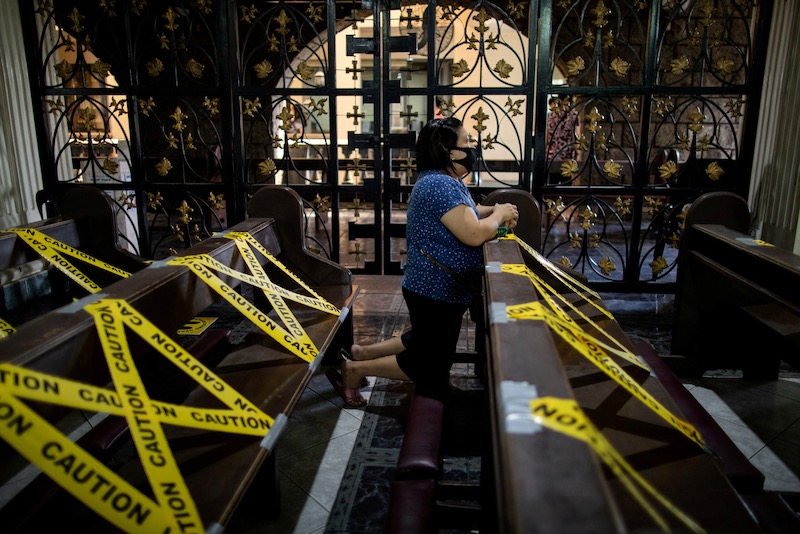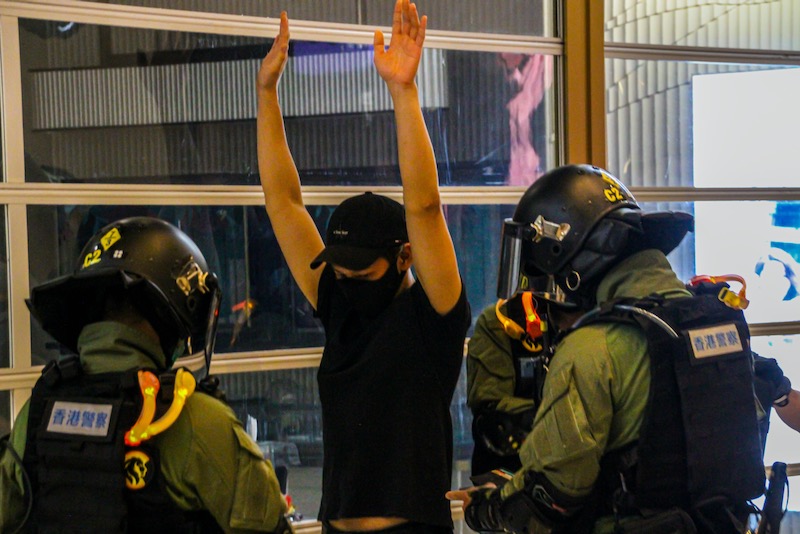The political upheavals in Hong Kong are being viewed with extreme concern in Macao, according to an Austrian Divine Word Missionary based in the territory.
Fr Franz Gassner, the dean of the faculty for religious sciences and philosophy at St Joseph’s University in Macao, said in an interview with Kathpress that people were fearful that they would lose their special rights in the way that recent security moves by the Communist Party in Beijing had taken away the rights of the people of Hong Kong.
After having been a Portuguese colony for 500 years, Macao was given back to China in 1999 and became a semi-autonomous region based on the “one country – two systems” principle. Politically it belonged to China, but it had a “quasi European constitution” which was “unique” and “very different indeed” from the Chinese system, Gassner pointed out.
“At the moment we still have the precious assets of religious freedom and freedom of speech. Macao is an island of religious freedom. We are allowed to have Catholic processions, which is not allowed in mainland China and that is only a stone’s throw away. And we even have a police band playing in our Catholic processions,” Gassner said. Religion was dealt with in a “rather casual way” and churches, educational institutions and universities were highly regarded.
The Catholic Church was held in especially high esteem in Macao although only five per cent of the population was Catholic, Gassner said. Forty per cent of the children in Macao went to Catholic schools despite the fact that very few of them were even Christian. And every year between 200 and 300 adults applied to be received into the Church in Macao’s eight Catholic parishes.
What was even more worrying than the present political conflicts in nearby Hong Kong, was the possibility of “technical control” – both in China and Macao, Gassner said. There was a “new danger” of totalitarianism with surveillance cameras proliferating.
Today, there was a growing interest in religious and ethical subjects in the People’s Republic of China, he said, which was sometimes “open” and sometimes “hidden”. It was important to engage in dialogue, in which “a great deal of patience and an understanding of colonial history” were equally necessary.
Meanwhile a leading voice in Christian Solidarity Worldwide and the founder of Hong Kong Watch has said he confused about “how badly wrong” Pope Francis has been in his handling of China.
Benedict Rogers, a Catholic convert and CSW’s East Asia team leader, writing in “Foreign Policy” magazine, cited public figures such as Marie van der Zyl, president of the Board of Deputies of British Jews, who last month wrote a letter to the Chinese ambassador in London comparing the situation of Uighur Muslims in China to the Holocaust.
She said are similarities between what is reportedly happening to the Uighurs and what happened in Nazi Germany: “People being forcibly loaded on to trains; beards of religious men being trimmed; women being sterilised; and the grim spectre of concentration camps.”
In his piece, Rogers noted that so far, no major Muslim authority has come out in condemnation of the Uighur situation, nor has Archbishop Justin Welby of Canterbury, as “first among equals” of the primates of the Anglican Communion. However, of all these, Rogers said “it is Francis’s silence that shocks” the most, as he is normally outspoken on behalf of the oppressed.
Pope Francis has repeatedly advocated for an end to conflicts in Syria, Yemen, Ukraine, Nigeria, and elsewhere, yet in all his appeals, China has been absent, despite increased attention over the Uighurs, the imposition of the new security law in Hong Kong, and ongoing harassment of Catholic and other Christian clergy.
China has also come under fire in recent months for its record on human trafficking, particularly the trafficking of brides.
In its 2020 Trafficking in Persons report, the US State Department placed China on Tier Three, its category of most concern, alongside South Sudan, North Korea, Syria, Afghanistan, Eritrea, Nicaragua and Venezuela, among others.
Women’s rights activist Reggie Littlejohn, who founded the Women’s Rights Without Frontiers organisation called the statistics on sexual slavery in China “heartbreaking”.
She said: “Baby girls have been selectively aborted, abandoned, and medically neglected. The resulting collapse in the marriage market is perhaps the reason the Chinese government turns a blind eye to sex trafficking – and in some instances, even facilitates it.”
In his article, Rogers linked Pope Francis’s silence on China to the 2018 agreement between the Vatican and Beijing on the appointment of bishops, the renewal of which is currently being negotiated.
Meanwhile Bitter Winter magazine reported on 30 July that the Chinese Communist Party is offering monetary rewards to those who report the presence of home churches in their communities. Rewards in the “incentive” programme have swelled to up to 100,000 RMB ($14,000), the magazine said.



 Loading ...
Loading ...